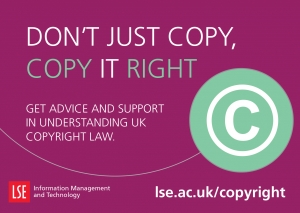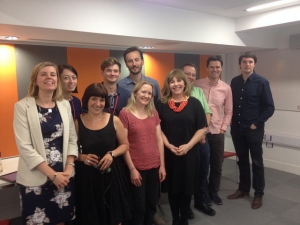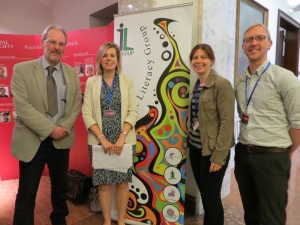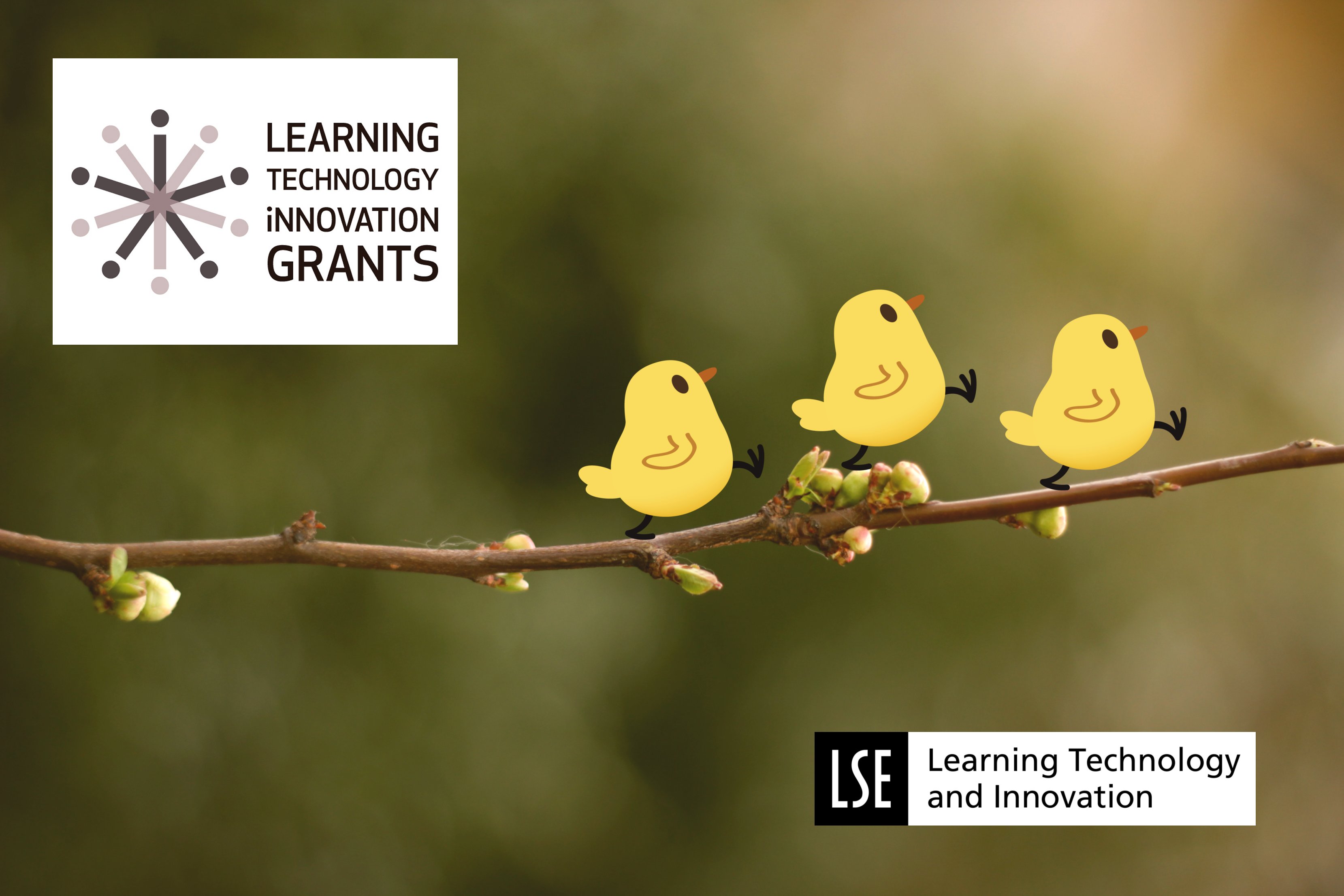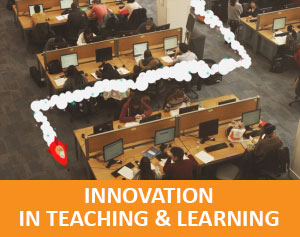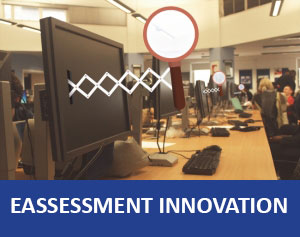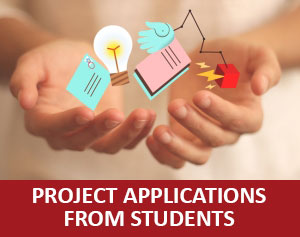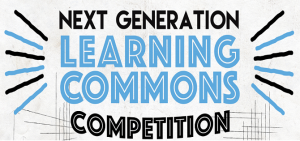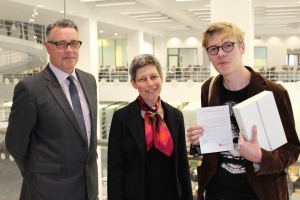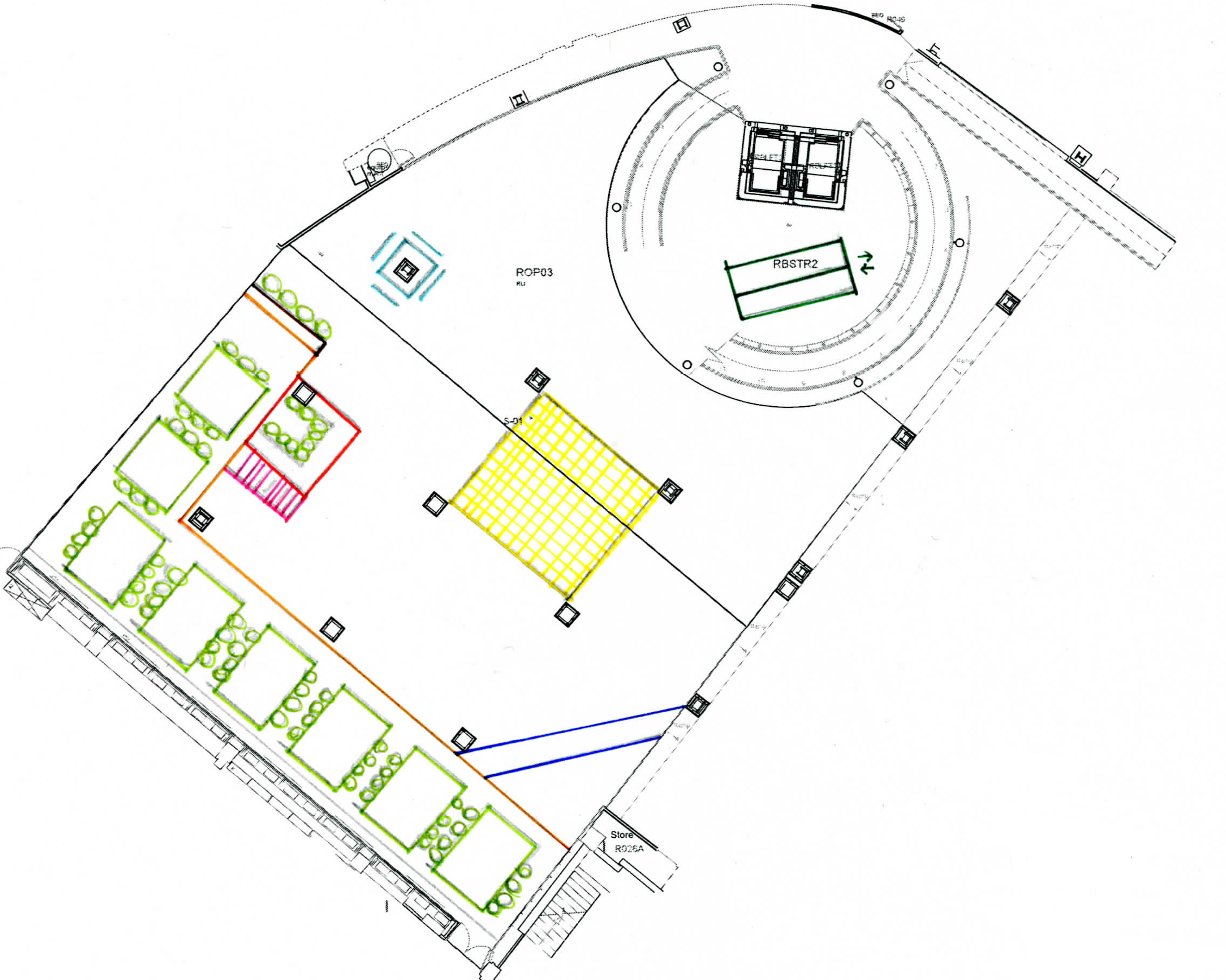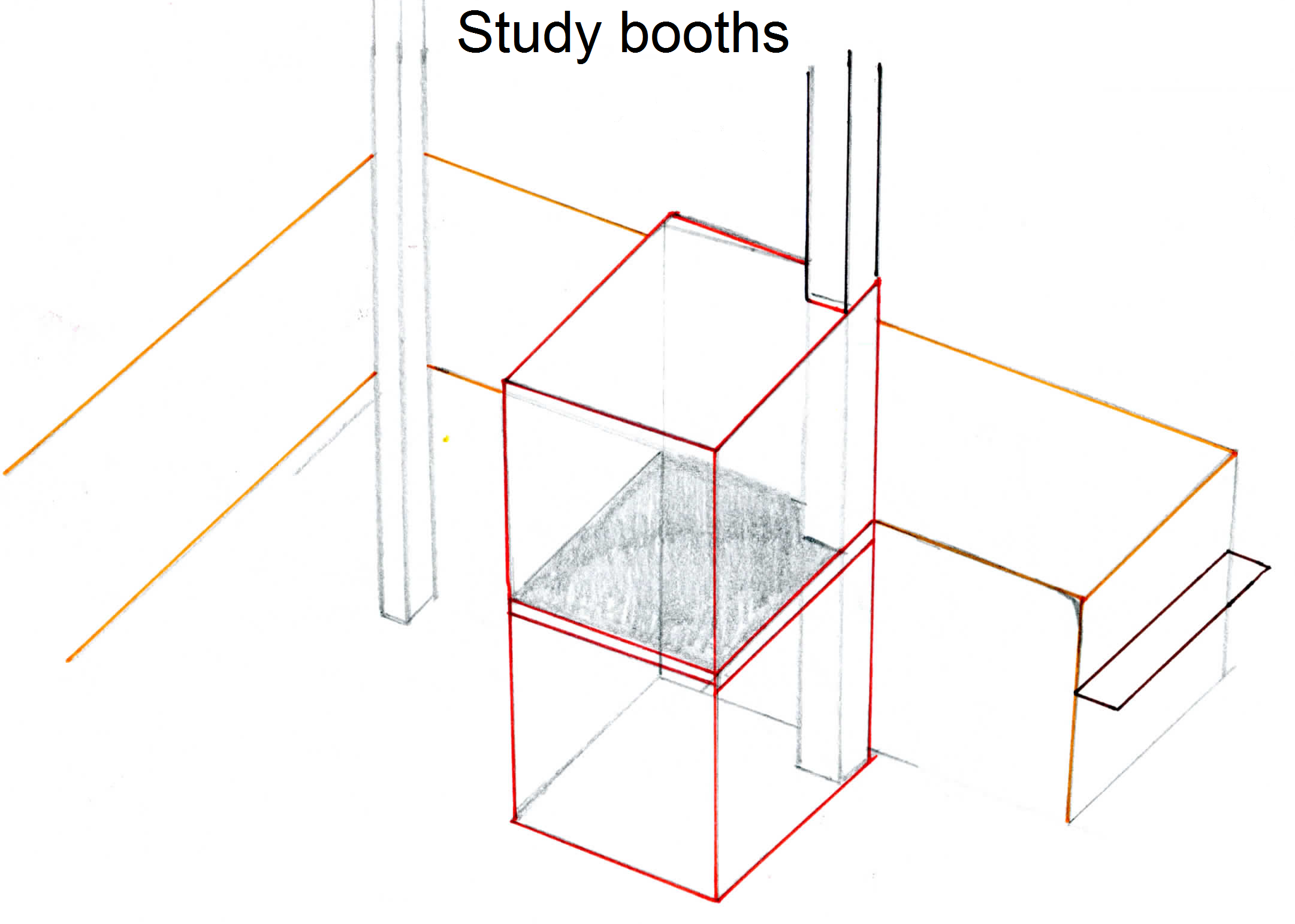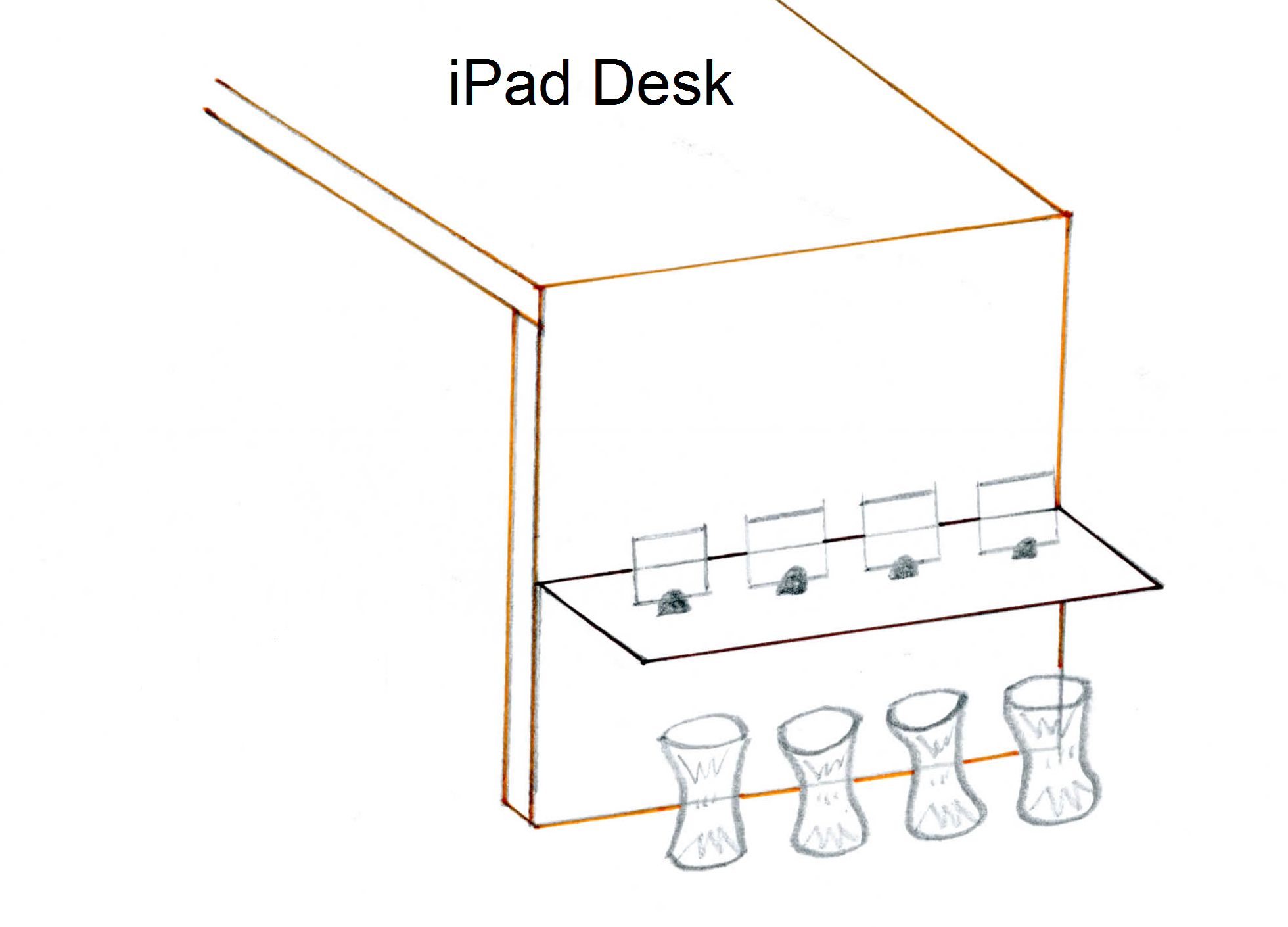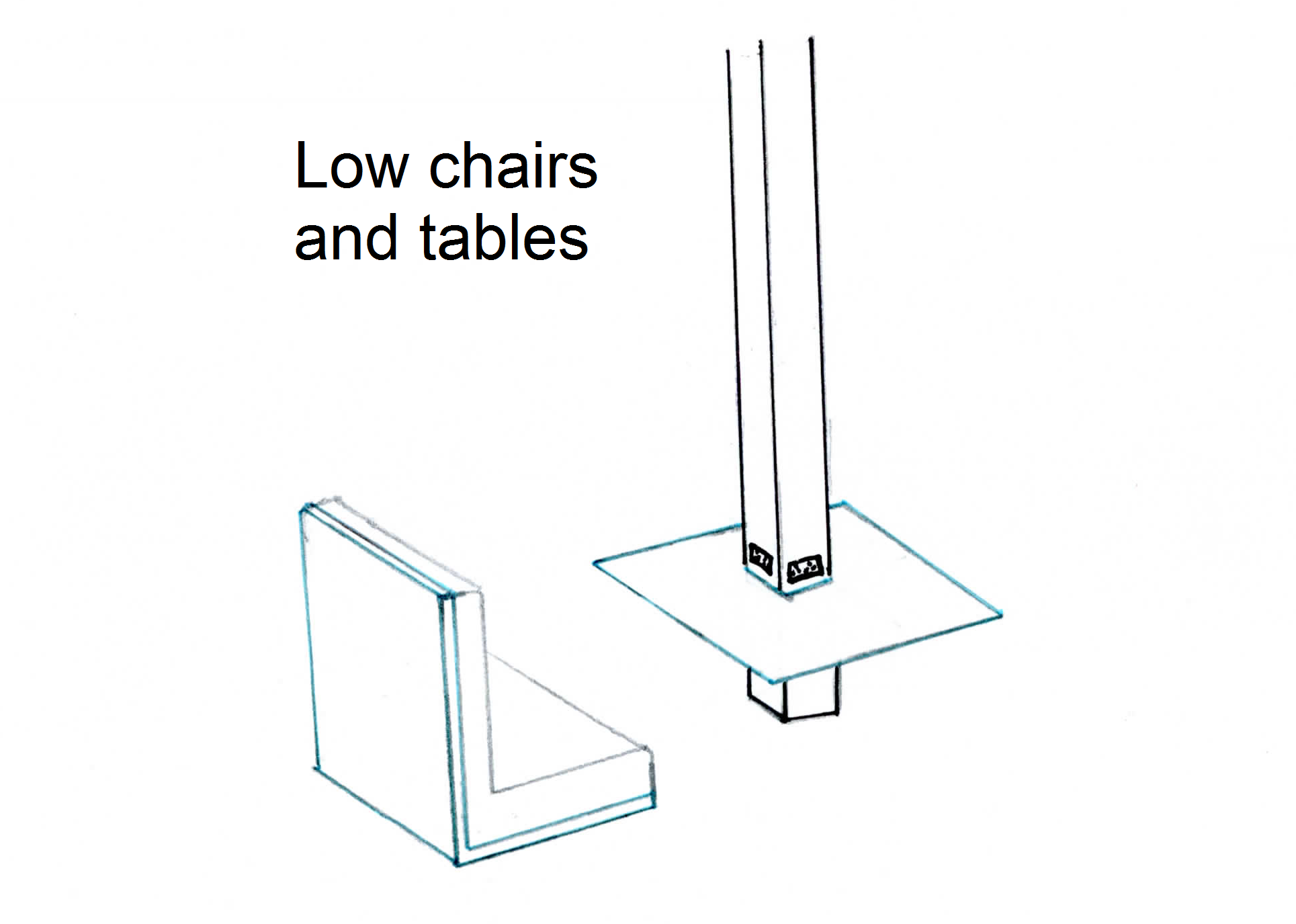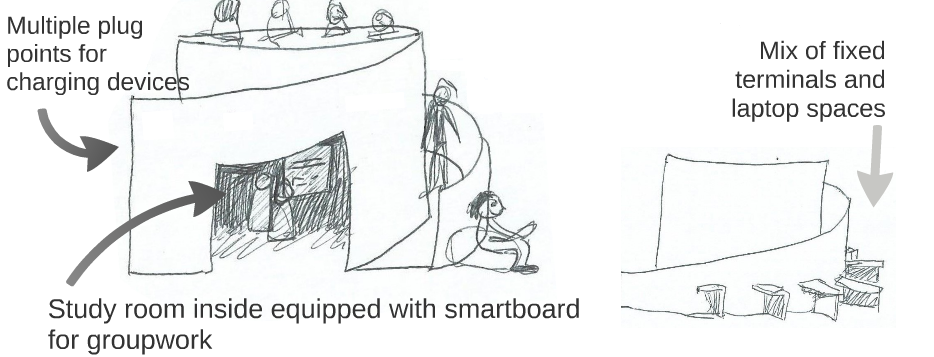 The NetworkEDGE seminar on Wednesday 20 May will be a ‘Women in technology panel’ which will discuss ‘The role of education in encouraging women to work in technology’
The NetworkEDGE seminar on Wednesday 20 May will be a ‘Women in technology panel’ which will discuss ‘The role of education in encouraging women to work in technology’
Dr Ellen Helsper, from LSE will be chairing the panel so we caught up with her to find out why she is taking part in the discussion and her views on women in technology.
Can you tell us why you are chairing the ‘women in tech panel’ for networkEDGE?
When LTI asked me if I wanted to chair this panel I did not hesitate for a moment because I think the issue of why there is unequal participation of women in both the study of technology and career trajectories in IT is an extremely important one to consider. I have been simultaneously concerned and fascinated by the question of why, after several waves of feminism and women now making up a majority of the students in higher education, we are seeing a stagnation and even drop off in women taking up STEM subjects as students and in professional careers. I think it should be a societal concern that women are less likely to enter, are more likely to drop out and not return to careers like these and are much less likely to take up leadership roles in these fields than in others that have not historically been male dominated. Our everyday lives are increasingly being lived and shaped by IT and the lack of women in the design of these environments is extremely worrying. Not because I think that women are necessarily or inherently different than men but because I think it’s a great tragedy to lose the participation of such a large section of highly skilled individuals in our society with the wealth of knowledge and experience that could change our organisational cultures and output for the better. The reasons that push a lot of women out of this sector are also likely to influence many others to leave or not engage, others who might have a different way of doing things and a different, perhaps more inclusive approach to IT design and regulation. Looking at this is also important because it shows that there are still inherent inequalities and unconscious biases that steer the way in which resources and participation are distributed in our society and by being confronted with this we are forced to look at our own practices and beliefs and how they contribute to these patterns.
How does your own academic work link to the topic of the panel discussion; ‘The role of education in encouraging women to work in technology’
My work focusses on the links between social and digital exclusion. I research how existing patterns of inequality in offline resources such as economic, cultural and personal capital and individual well-being, are overcome, replicated or amplified with the digitisation of our society. An important aspect of this is the patterns of inequality in digital literacy and participation in a range of different online activities and environments. My research focusses on how the social and the digital context influences how comfortable people feel in engaging with ICTs. Thus, an important question for me to ask is how the design of platforms and content leads some people to feel more confident in engaging with digital and in digital environments. But also important is to ask how organisational and social structures influence how individuals see technologies and their own capabilities of and motivation to interact with and on digital platforms.
Sadly, most research to date shows that a replication and amplification of offline inequalities is likely in increasingly digital societies. For example, a recent report we published showed that women are less likely to be able to translate Internet use into tangible offline benefits because of disparities in digital skills levels between men and women (see http://eprints.lse.ac.uk/61807). This is partly to do with differences in confidence but is also likely to be caused by differences in the ways in which appropriate use of technologies are seen by men and women. My work looks at the causes, consequences and potential solutions for these patterns of linkage between social and digital exclusion.
What can formal educational institutions do to encourage more women to work in technology?
Of course one of the things that formal education can do is to encourage more women to study STEM and IT related subjects. Secondary and Higher education should incorporate training in digital skills as a matter of practice across all subjects. It is important that these are not just technical, coding skills but a range of skills that is needed to participate and work in increasingly digital environments (see http://www.oii.ox.ac.uk/publications/Measuring_Digital_Skills.pdf).
However, that will not be enough. Formal educational institutions need to collaborate with external stakeholders to create a society in which technologies are not seen as alien, where in fact they are related to everyday activities and seen as a common aspect of many different activities in our professional and personal lives: a society in which work in IT is not removed from all the other things that we do but one in a range of many options. One of the problems I see is the alienation or ‘technification’ of all things digital and technological. Instead of looking at the application and the usefulness of these technologies in everyday lives, careers in IT are often painted as an amazing world for geeks unrelated to the realities of what people do in their everyday lives. Instead of focussing on what we can do with technologies and how we can design technologies to make our everyday lives better many IT career campaigns focus on the technology and the world of inventors and entrepreneurs which are consistently imagined as white, middle class, middle aged men. A change in this vision of what IT is for and what an IT career can do, is not something that would only encourage women but also a range of other groups of individuals who feel excluded from that world. In addition, formal higher educational institutions can, in their research and teaching, try to change the work cultures in this field by influencing the ideas of people who will work in this field in the future and by making organisations aware of their existing practices and offering practical solutions for change.
Why do you think there is an unequal division of labour within the tech sector, with certain types of tech and management roles filled almost exclusively by men?
This is a hard question to answer, because there is something specific about the tech sector, where women are less likely to return to work after, for example, maternity leave even more so than in other STEM sectors. Work cultures in IT are often described as gruelling, competitive, long, and socially isolated working lives without much mentoring or support for those who do not fit in neatly. The Athena Factor report published in the Harvard business review (http://tinyurl.com/pft7s42) shows that work culture is one of the main factors keeping women out of careers in STEM subject, more so than the fact that they are taking on a greater burden in care and household responsibilities and are still lower paid. I would guess that this work culture is even stronger in the IT related careers and that there is a lack of awareness of what the real causes are of women feeling uncomfortable or unwilling to take up leadership roles within these environments.
The idea of meritocracy and choice in career progression in these industries is strong. The idea is that if you don’t make it to the top it’s because you were either not dedicated enough, did not have that bright idea or because you made a choice not to. I find the idea of choice particularly problematic, if it is really free choice why is it that certain groups of individuals in our society are much less likely to take up careers and proceed up the ladder in the tech sector than in other sectors? There must be more structural, cultural factors that explain this.
What can organisations that employ people in technology do to change the unequal gender participation in and division of labour in technology field?
This goes back to what I commented on before when discussing what formal education can do, there needs to be a change in work culture and a serious effort needs to be made to understand what really causes drop out amongst certain groups such as women. Quota’s and targets of getting more women into leadership positions are one part of it but this needs to be combined with a serious look at why these paths are not naturally taken or open to women and other groups. Quota’s help because people are more likely to hire and feel comfortable around people like them and are more likely to apply to positions and feel like they belong in environments that are not homogenous in a way that’s different from who they are. More transparent promotion and mentoring processes within companies are a fundamental part of this alongside reviews of working practice and clear action points to improve the culture.
Dr Ellen Helsper is Director of Graduate Studies and Associate Professor Media and Communications Department LSE
Email: e.j.helsper@lse.ac.uk Twitter:@ellenhel
http://www2.lse.ac.uk/media@lse/whosWho/AcademicStaff/EllenHelsper.aspx
The NetworkEDGE women in tech panel discussion will take place on Wednesday 20 May at 3pm in R01. LSE staff can book places via the online training system. Guests are also very welcome to attend and can book a place by emailing LTI.Support@lse.ac.uk. For those that cannot attend the discussion will be recorded and livestreamed onto this blog.
![]() Donna Lanclos is an anthropologist working with ethnographic methods and analysis to inform and change policy in higher education, in particular in and around libraries, learning spaces, and teaching and learning practices. She is Associate Professor for Anthropological Research at the J. Murrey Atkins Library at UNC Charlotte.
Donna Lanclos is an anthropologist working with ethnographic methods and analysis to inform and change policy in higher education, in particular in and around libraries, learning spaces, and teaching and learning practices. She is Associate Professor for Anthropological Research at the J. Murrey Atkins Library at UNC Charlotte.

